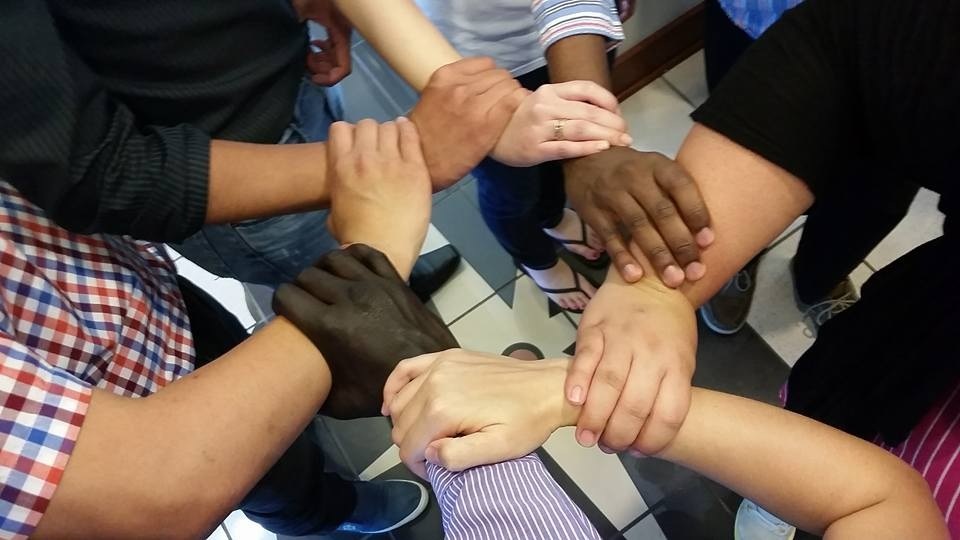January 14, 2018
If your mother is white and your father is African-American, what race are you?
a. White
b. African-American
c. Before 1989, African-American
d. 1989 or later, white
Would it surprise you to learn that the answer is both c and d? For those who live in the United States, the race of a child as listed on a birth certificate has been based on a changing set of rules. If both parents were white, the child was white. Before 1989, if only one parent was white, the child was assigned the race of the nonwhite parent. Since 1989, the race of the infant has been determined by the mother’s race.
 If a person can be identified as African-American for several years and then later be identified as white, it is clear that race, as understood in the United States, is a social construct — rather than an objective, scientifically or biologically consistent characteristic of a person or group of persons. There is only one race, the human race. Evidence from the Human Genome Project indicates that the genetic code for all human beings is 99.9 percent identical. There are more differences within groups (all races) than across groups.
If a person can be identified as African-American for several years and then later be identified as white, it is clear that race, as understood in the United States, is a social construct — rather than an objective, scientifically or biologically consistent characteristic of a person or group of persons. There is only one race, the human race. Evidence from the Human Genome Project indicates that the genetic code for all human beings is 99.9 percent identical. There are more differences within groups (all races) than across groups.
Race Relations Sunday is a reminder for those of us in the church to recommit ourselves to end racism. When Peter preached his “Race Relations Day” sermon, he said, “I truly understand that God shows no partiality, but in every nation anyone who fears God and does what is right is acceptable to God” (Acts 10:34–35). The translation in the Good News Bible is my favorite. It reads, “Those who fear God and do what is right are acceptable to God, no matter what race they belong to.” God shows no partiality. It doesn’t matter how you look. The color of your skin does not correlate with your value.
Implicit bias is revealed when we make snap judgments about the characteristics of a person based on factors as arbitrary as skin color, hair texture, other physical features, abilities, age, sexual orientation or gender, believing that this makes some people more valuable or less valuable and placing some in a privileged category and others in a disadvantaged category. These snap judgments are quick and unconscious associations toward a group. What is challenging for many is that these biases may be in direct conflict with their explicit beliefs and values. A person may believe that s/he thinks one way, but react in a contrary way. The best way to interrupt implicit bias is, first, to become aware of it, to admit that these biases exist. Next, we can train ourselves to counter bias by changing our reactions and actions and joining intercultural coalitions of people who are working to think and behave differently.
We were anointed at our baptisms, and a new humanity, a new people, a new race was created, where all are one in Christ Jesus. So today we reaffirm our baptisms, joining the intercultural community, of every race and people, created equally in God’s image, and anointed to God’s service.
Rhashell Hunter, Director of Racial Ethnic & Women’s Ministries, Presbyterian Mission Agency
Today’s Focus: Race Relations Sunday; Speak Antiracism
Let us join in prayer for:
PC(USA) Agencies’ Staff
Jennifer Cash, PMA
Debbie Cassady, PILP
Let us pray:
O God, help us to become aware of our biases and to interrupt privilege, to risk building deeper relationships with those who are different from us, and to open ourselves to listen more, learn and appreciate others’ cultural heritages. Empower us to end racism and transform our church into the intercultural community of God.
Revised Common Lectionary Readings for Sunday, January 14, 2018, the Second Sunday in Ordinary Time (Year B)
First Reading 1 Samuel 3:1-10 (11-20)
Psalm 139:1-6, 13-18
Second Reading 1 Corinthians 6:12-20
Gospel John 1:43-51
![]() You may freely reuse and distribute this article in its entirety for non-commercial purposes in any medium. Please include author attribution, photography credits, and a link to the original article. This work is licensed under a Creative Commons Attribution-NonCommercial-NoDeratives 4.0 International License.
You may freely reuse and distribute this article in its entirety for non-commercial purposes in any medium. Please include author attribution, photography credits, and a link to the original article. This work is licensed under a Creative Commons Attribution-NonCommercial-NoDeratives 4.0 International License.
Categories: Mission Yearbook
Tags: minute for mission, mission yearbook, race relations sunday, speak antiracism